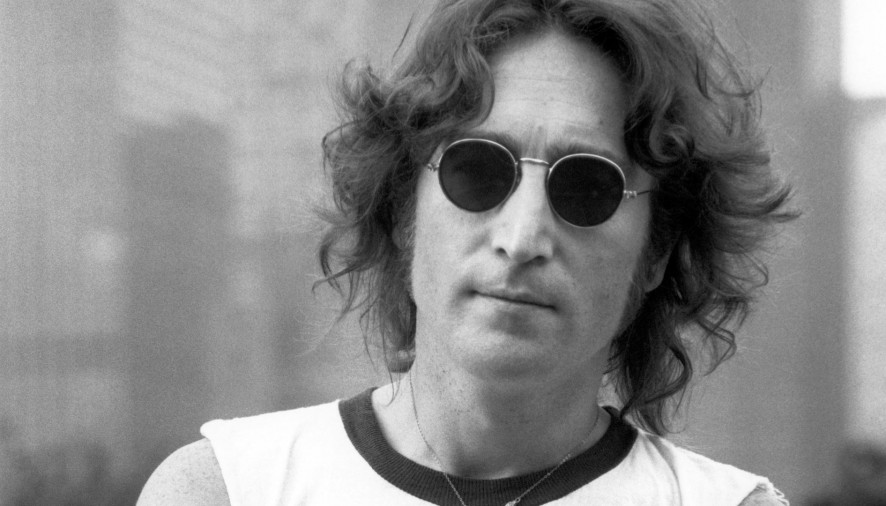On the 75th birthday of the famous Beatle, Juliette Rowsell evaluates the lingering influence of John Lennon.
From the fame, the talent and the beard, John Lennon apparently had it all. With the iconic member of The Beatles’ 75th birthday being on the 8th October, it’s hard to stop your mind from pondering what the working class hero would be doing today, were he still alive. Would he just be another aged rocker who should have given up in the 80s? Would he wrote a song better than ‘Imagine’? Would he be a Corbyn supporter? Would he still be a star?
But we needn’t ponder what Lennon would be doing today if he were alive. Despite Lennon’s explicit personal life full of drug-addiction and neglect towards his family, this has done nothing to tarnish his musical legacy. Just because the veteran of British pop music may be long buried, his memory, influence and music is just as alive today as it was in the 60s. The beard may be gone, but the legend lives on.
While today it’s common place for Nicki Minaj to call out the VMA’s as ‘racist’ or for musicians to speak out on political issues; it was Lennon who was the first epochal musician to open the door to full-frontal, disgruntled, and disillusioned attacks at society. The thought that a celebrity could so drastically influence the opinions of their fans was a result of the religious-like following the fab four gained from Beatlemania. The Church hated him, President Nixon tried to deport him, the FBI were monitoring him – he was attacking the world with his pacifist, atheist attitudes with an artillery of guitar chords and leftist lyrics. With Jeremy Corbyn (Labour’s new socialist, anti-tradition leader who is sticking two fingers up to the Tories) having said that he ‘would have played Imagine by John Lennon’ at his leadership conference, it’s not too far-fetched to imagine a baby face, clean shaved Corbyn sketching the lyrics to Lennon’s ‘Power to the People’ on the back of one of his untouched school books.
This was the genius of Lennon’s lyrics; he gave a voice to those who were unrepresented. He spoke of the issues people refused to talk about – people still refuse to talk about. Did Lennon know that, 50 years later, his lyrics would remain as prevalent today as they did in the 60s? Lyrics to the likes of ‘All You Need is Love’ are a bold statement that are relevant across humanity, not specific to a time or place. He created the image of a future that, while some deemed idealistic, was full of optimism and escape for a post-war, post-rationing generation. Highlighting how music could be used as a statement against society, his lyrics were snippets of poetry that resonated loudly amongst those seeking escapism from their mundane reality.
The Beatles defined what it meant to be a modern day rock n’ roll star. Following the wave of the psychedelic sixties, The Beatles’ admission they had taken LSD broke social boundaries. ‘Lucy in the Sky with Diamonds’ was accused of being an elaborate metaphor and acronym for LSD while other songs like ‘I am the Walrus’ , ‘Magical Mystery Tour’ and ‘Happiness is a Warm Gun’, unsurprisingly led to claims of drugs references for their eccentric lyrics. Paving way for the rebel chain-smoking, cocaine-sniffing, rock star image so famously embraced by the likes of the Gallagher brothers, it was Lennon and The Beatles who broke this taboo, creating this idolised image of musicians so normalised to us today.
Yet behind the star lay a cloud of darkness. Beneath his peace-loving persona lay a history of domestic abuse, infidelity and drug addiction. Lennon’s rock-star image never rested. While to the world this was a sign of excitement, to his family it was a source of pain. Lennon admitted in an interview with Playboy that: “I used to be cruel to my woman, and physically — any woman”, especially towards his first wife Cynthia. He neglected his family for fame, and Lennon failed to visit his first son Julian until years after his and Cynthia’s divorce. After a hard day’s night in the recording studio singing about “imagine no possessions”, Lennon could return home to his multi-million pound apartment in one of New York’s most prestigious apartment blocks. While Lennon possessed the image of a working-class hero, he was more of a working class myth. His legacy, while changing the face of music forever, was based on a lie that Lennon had crafted.
Lennon once commented that “everyone loves you when you’re six feet in the ground” but, for all intrinsic purposes, the unconventional Beatle is far from dead and buried. There’s no point in imagining where Lennon would be today had he not been shot in 1980 when his influence so vividly lives on today. While Lennon’s personal life may have been filled with a darkness he tried so desperately to cover, this has failed to dent his legacy. It’s scary how much one man and a guitar can change the world. But boy, he sure did.
Juliette Rowsell

